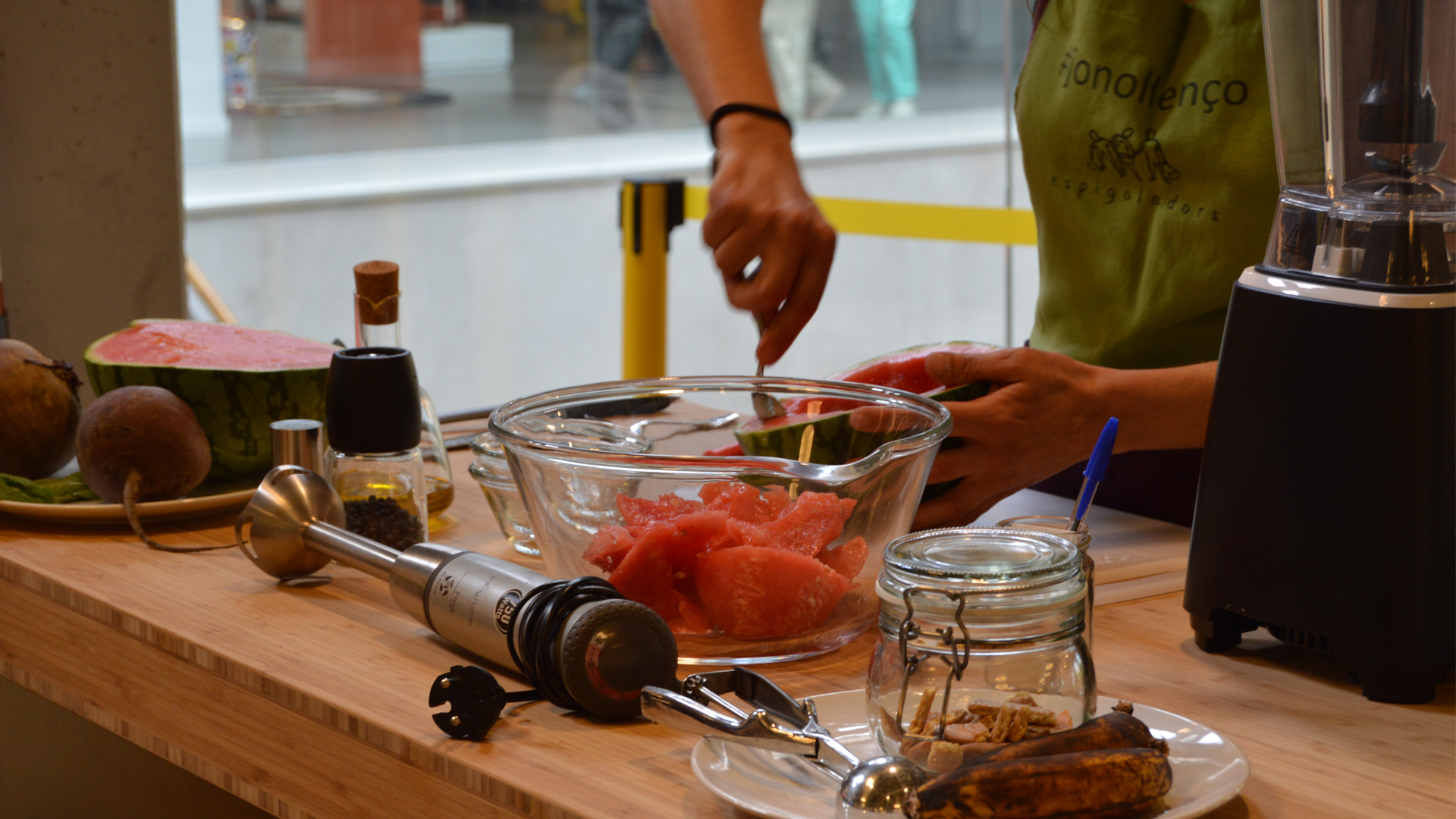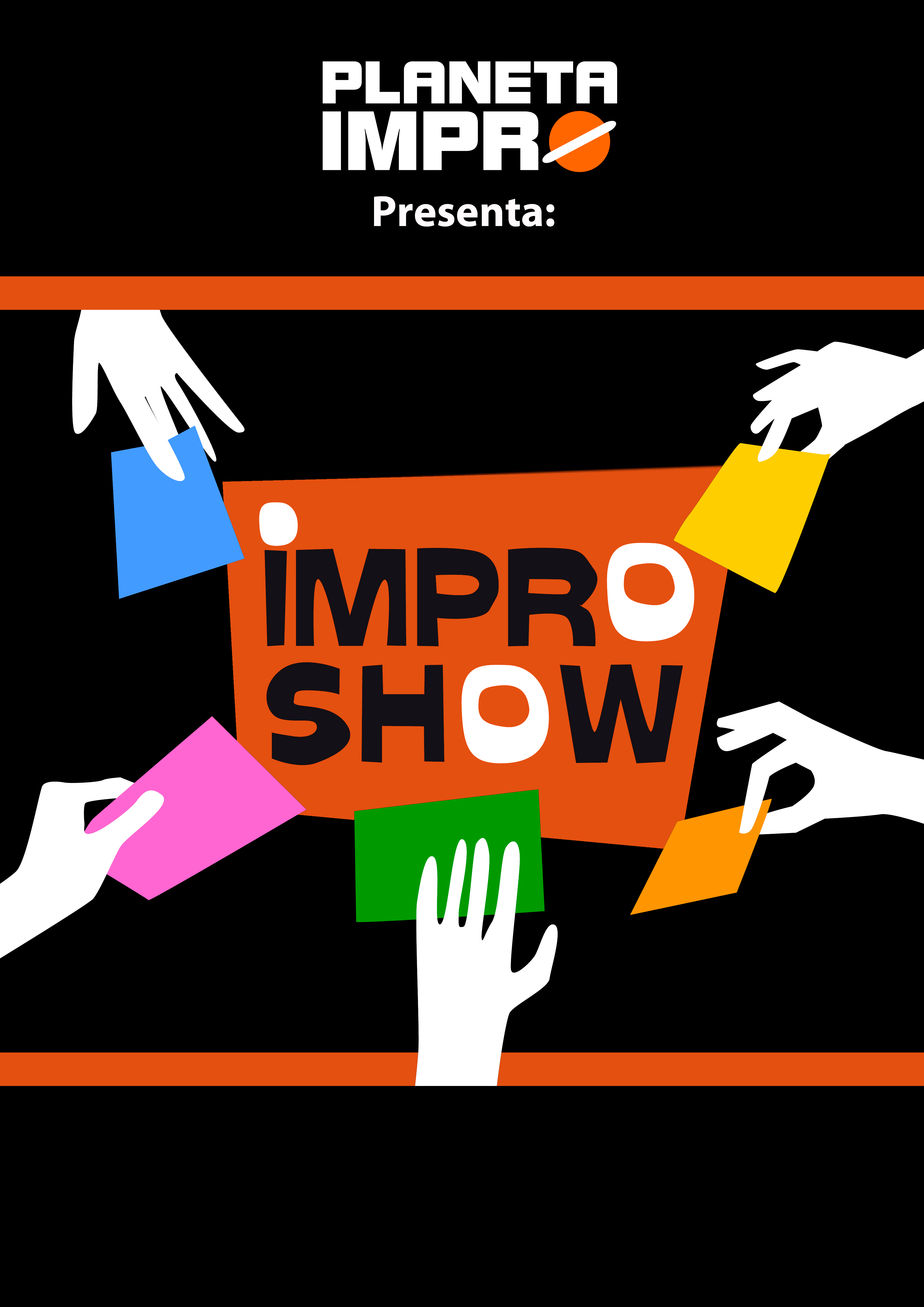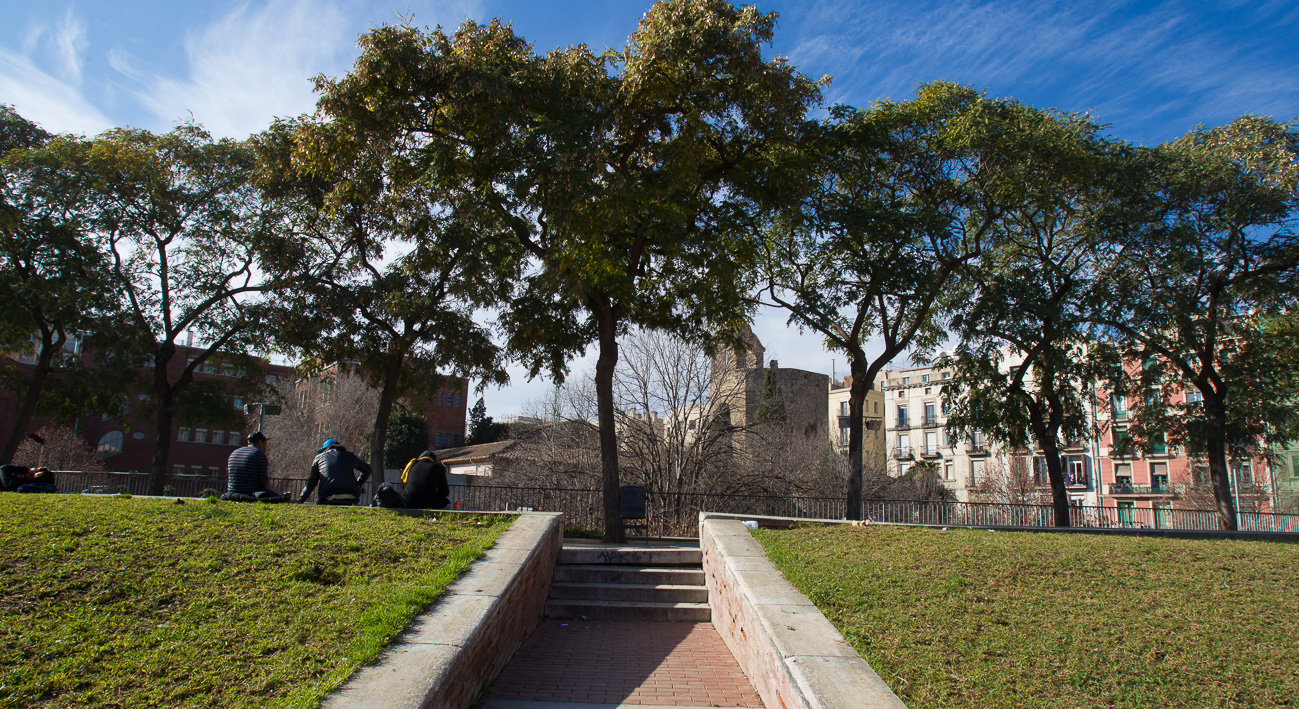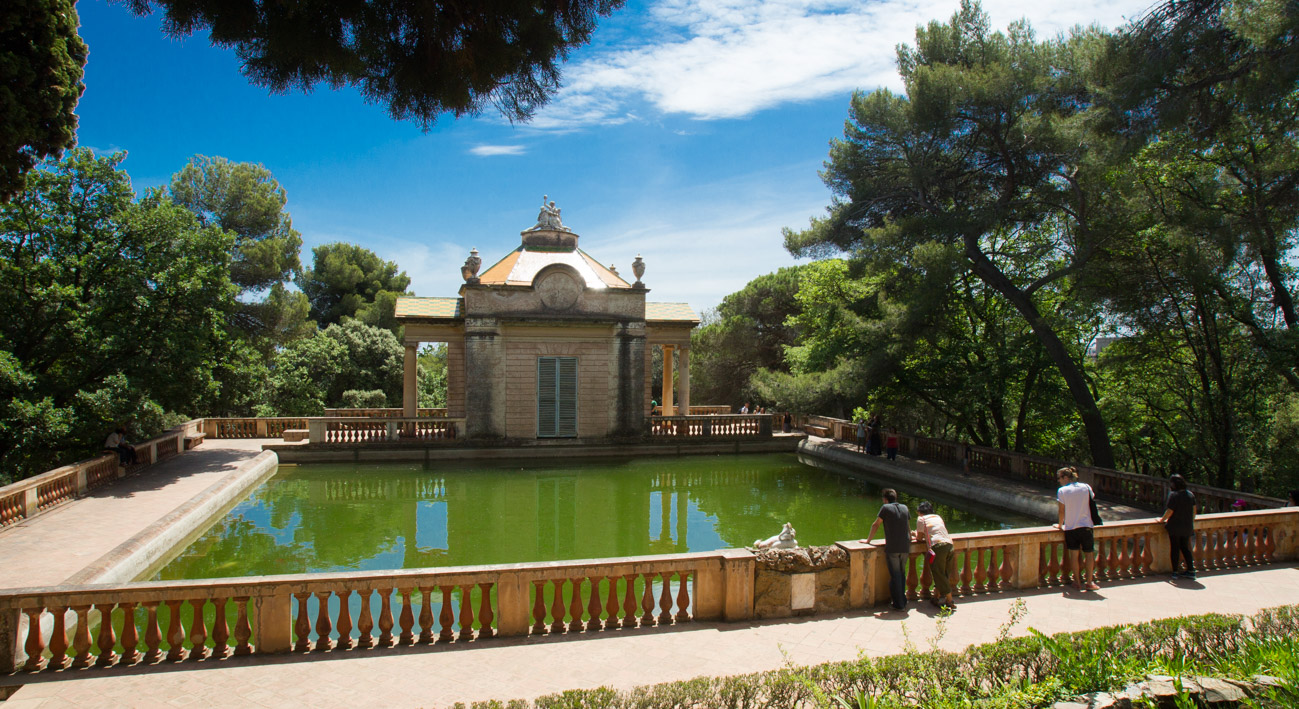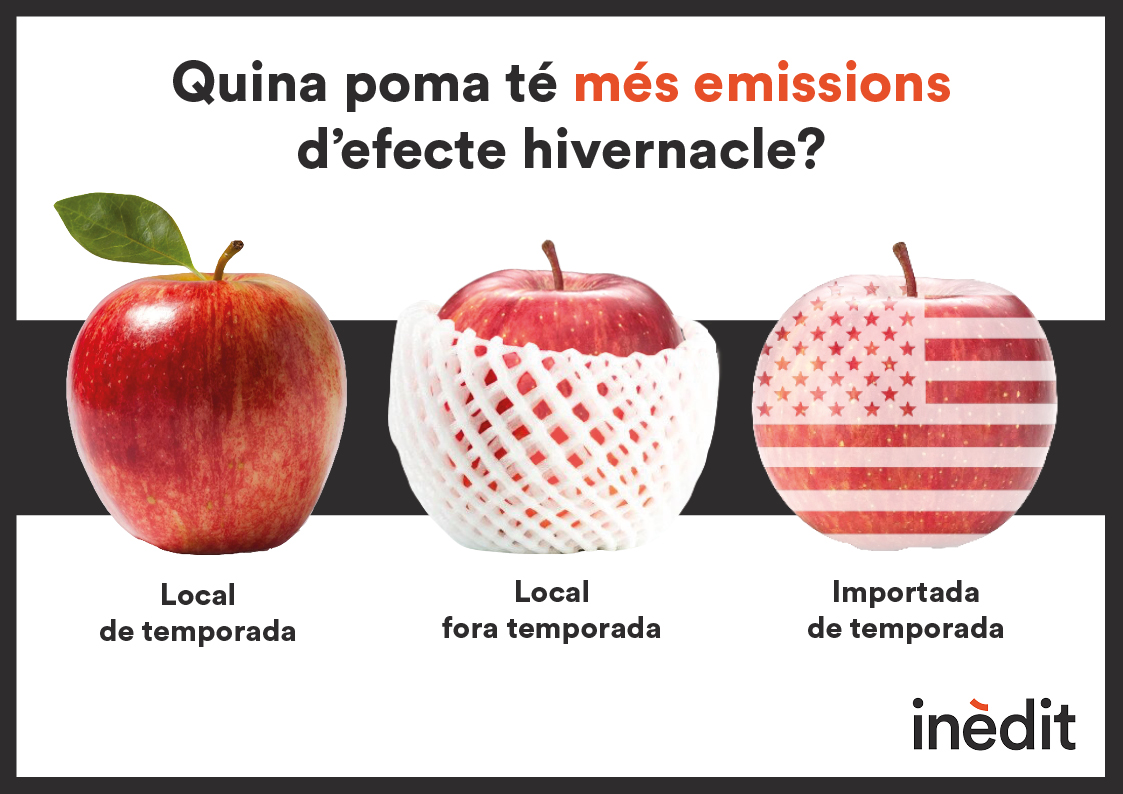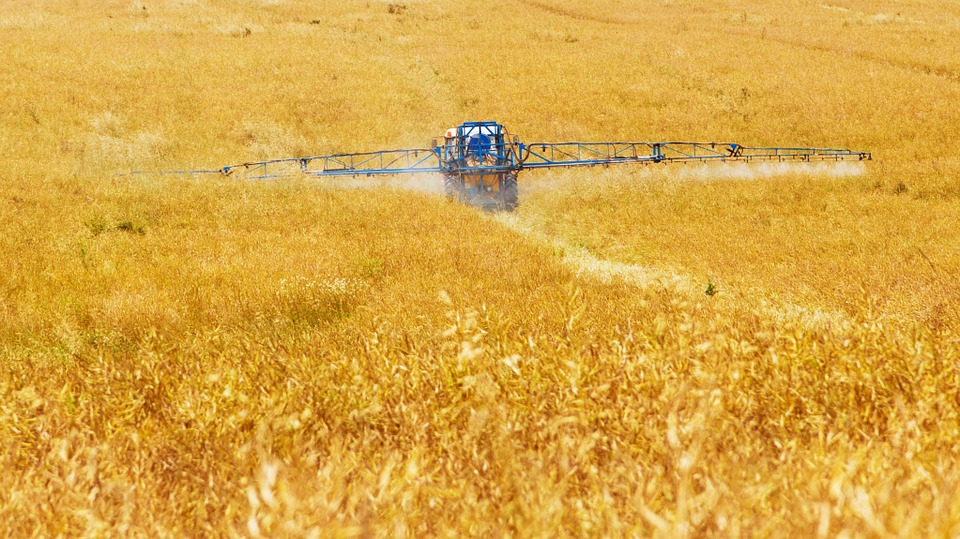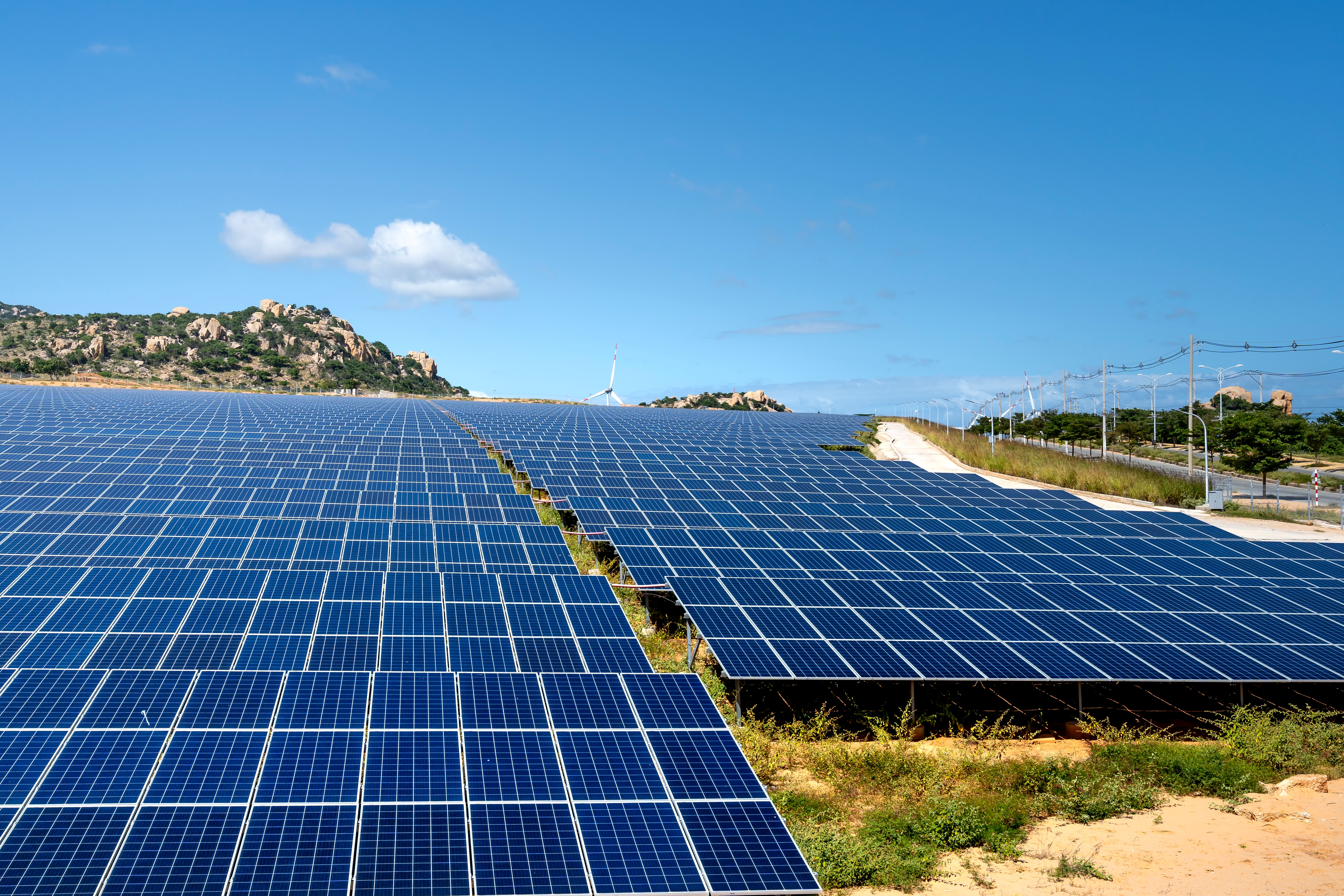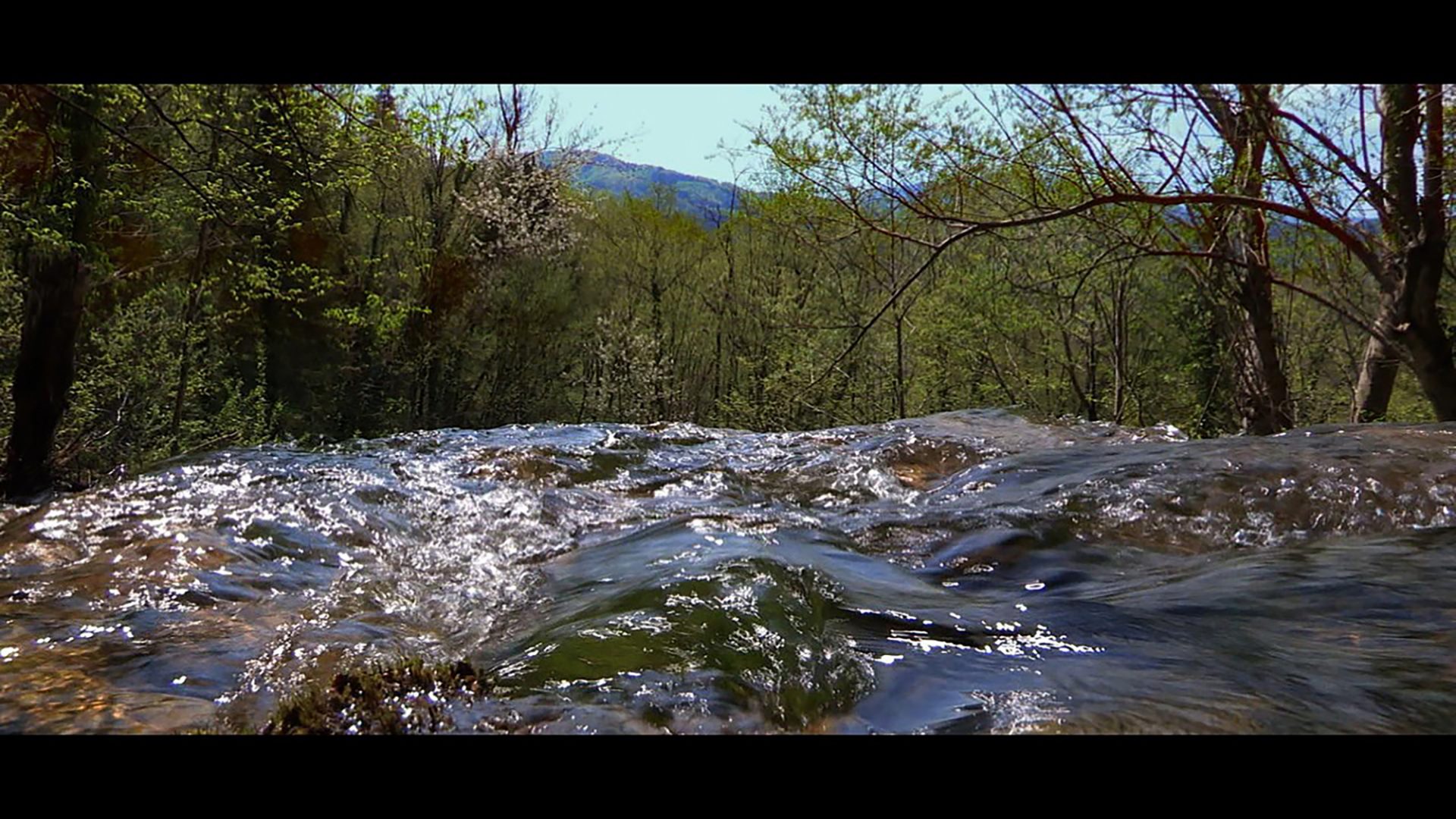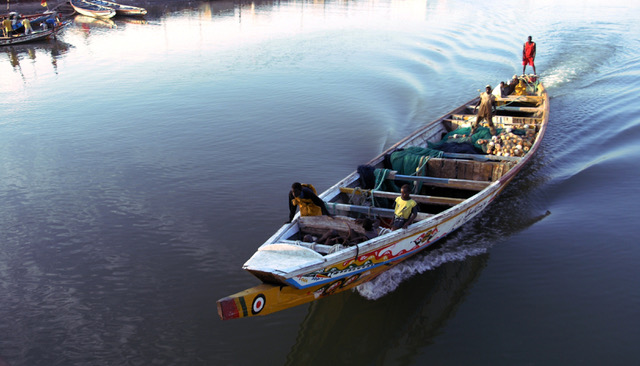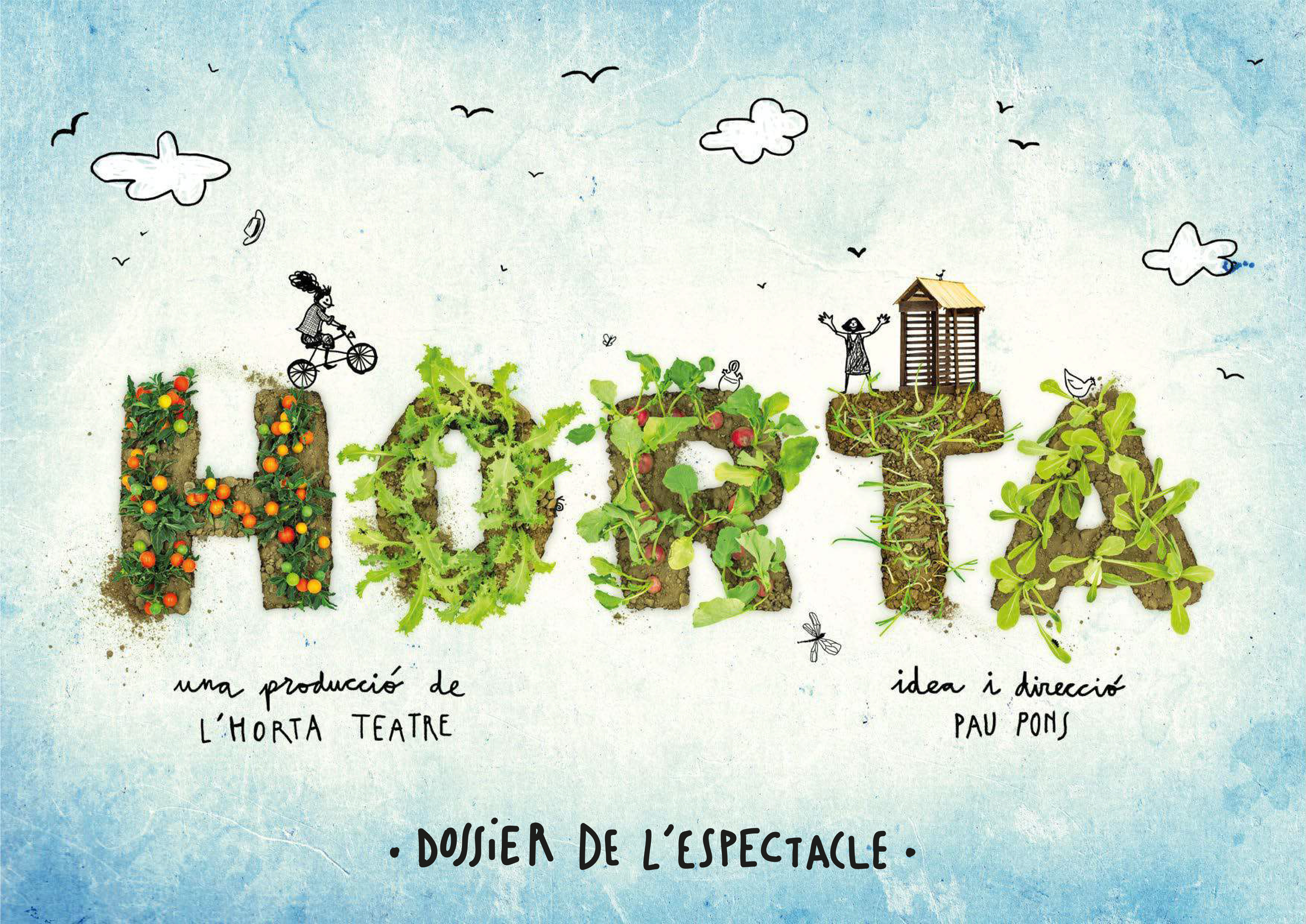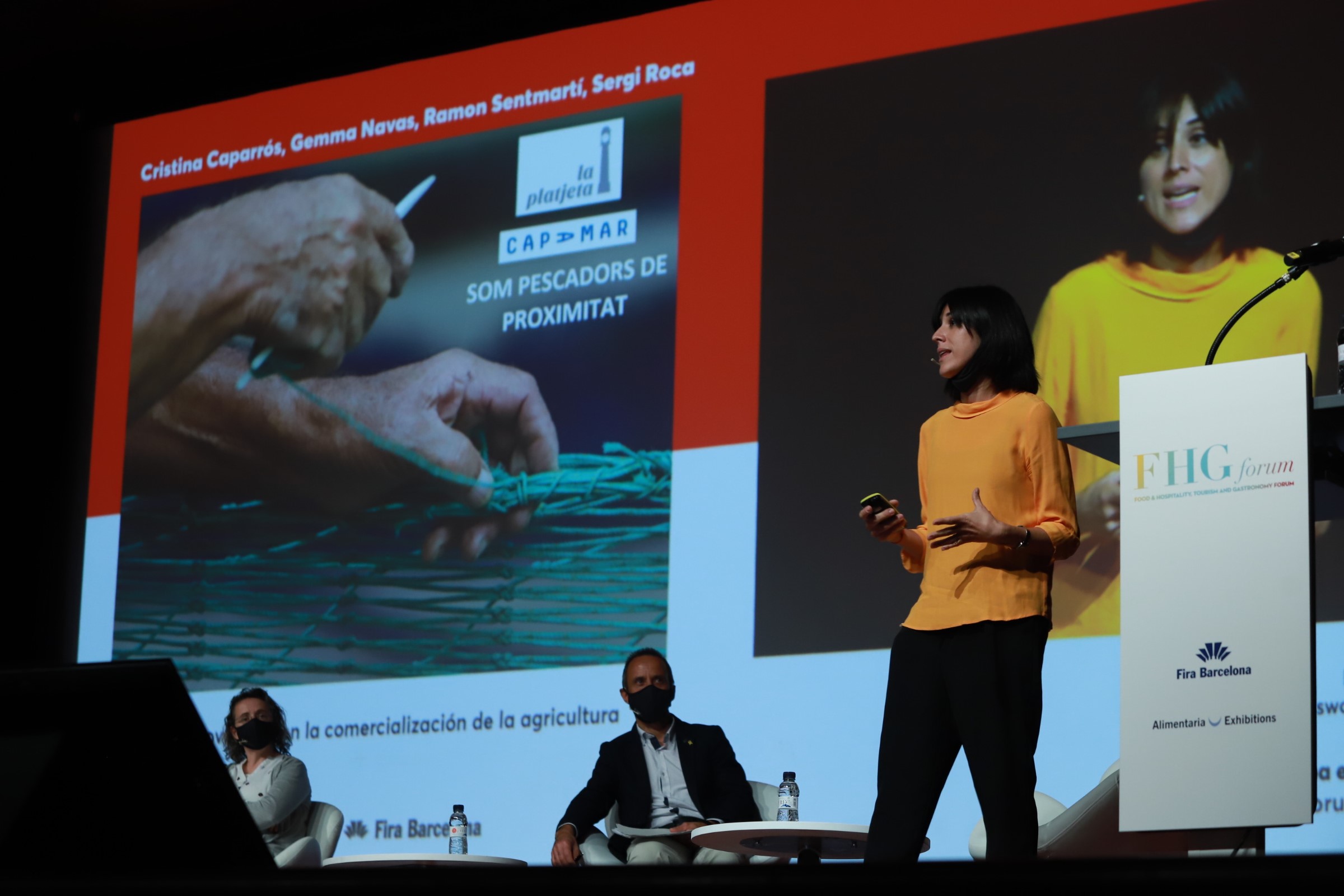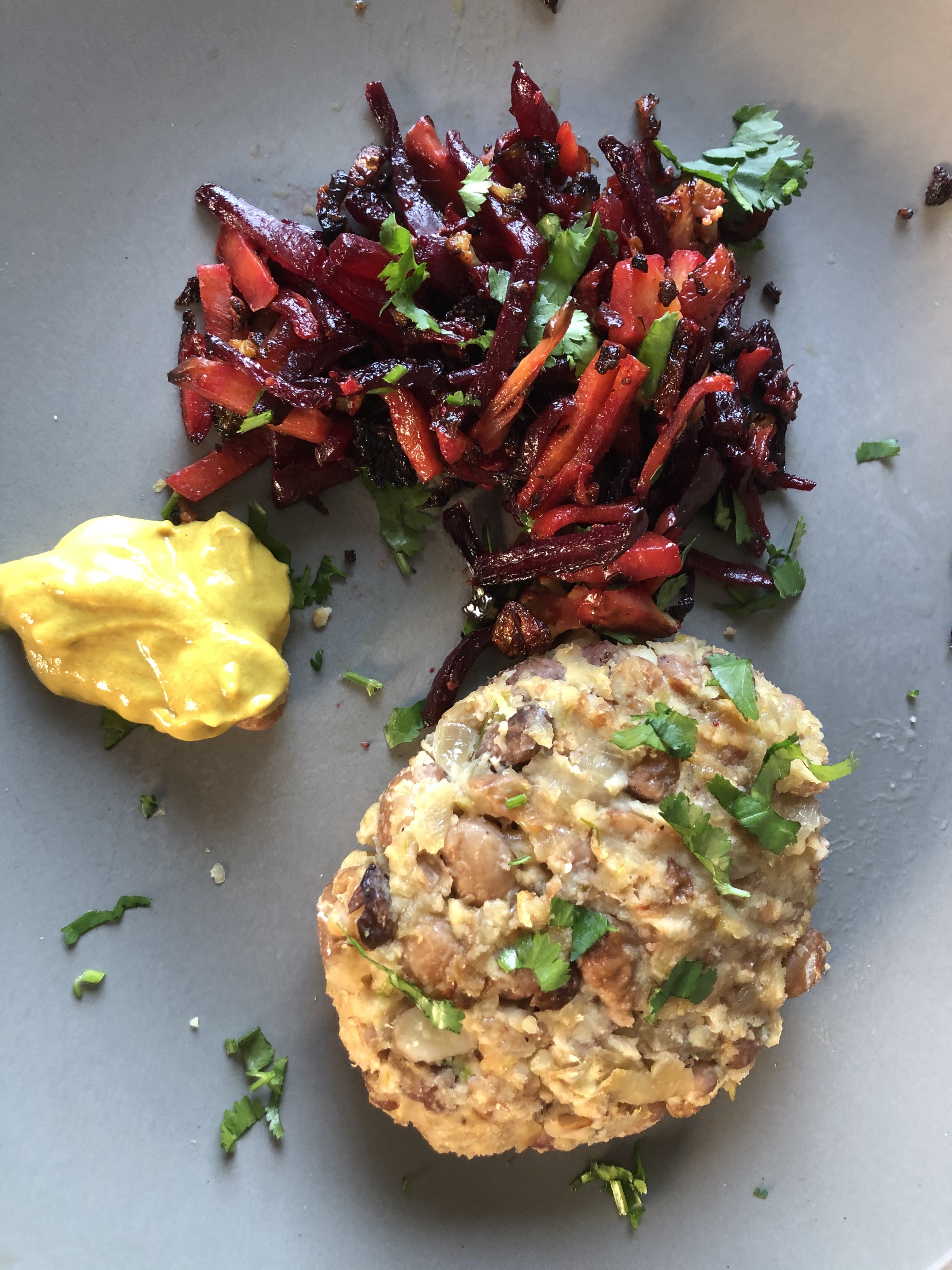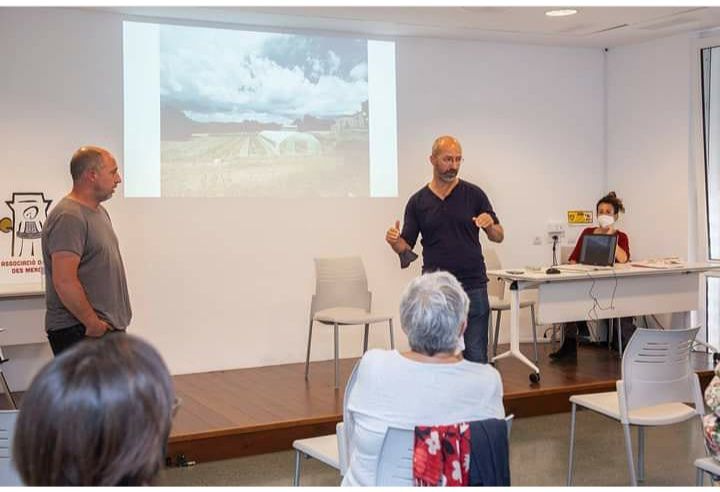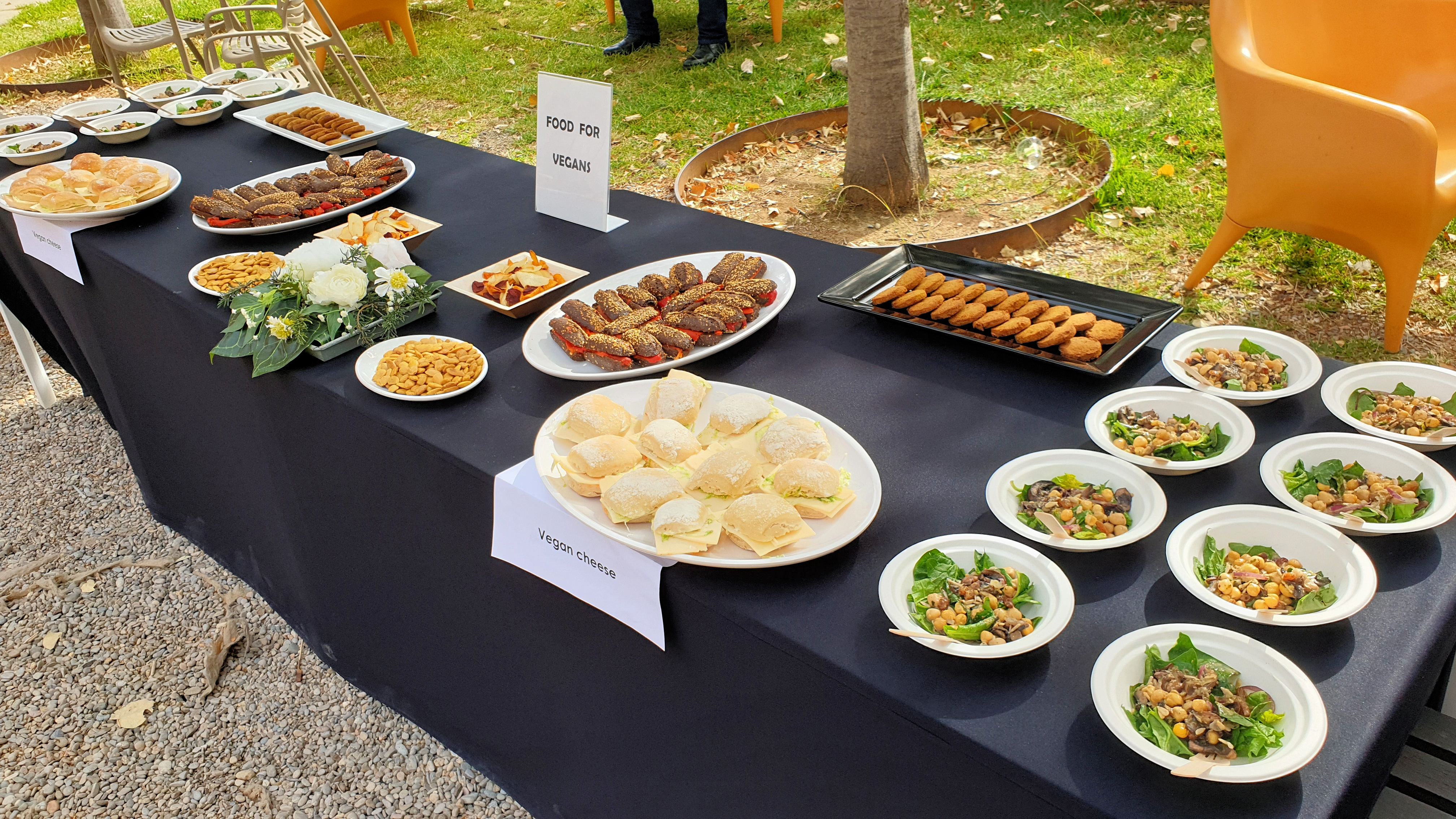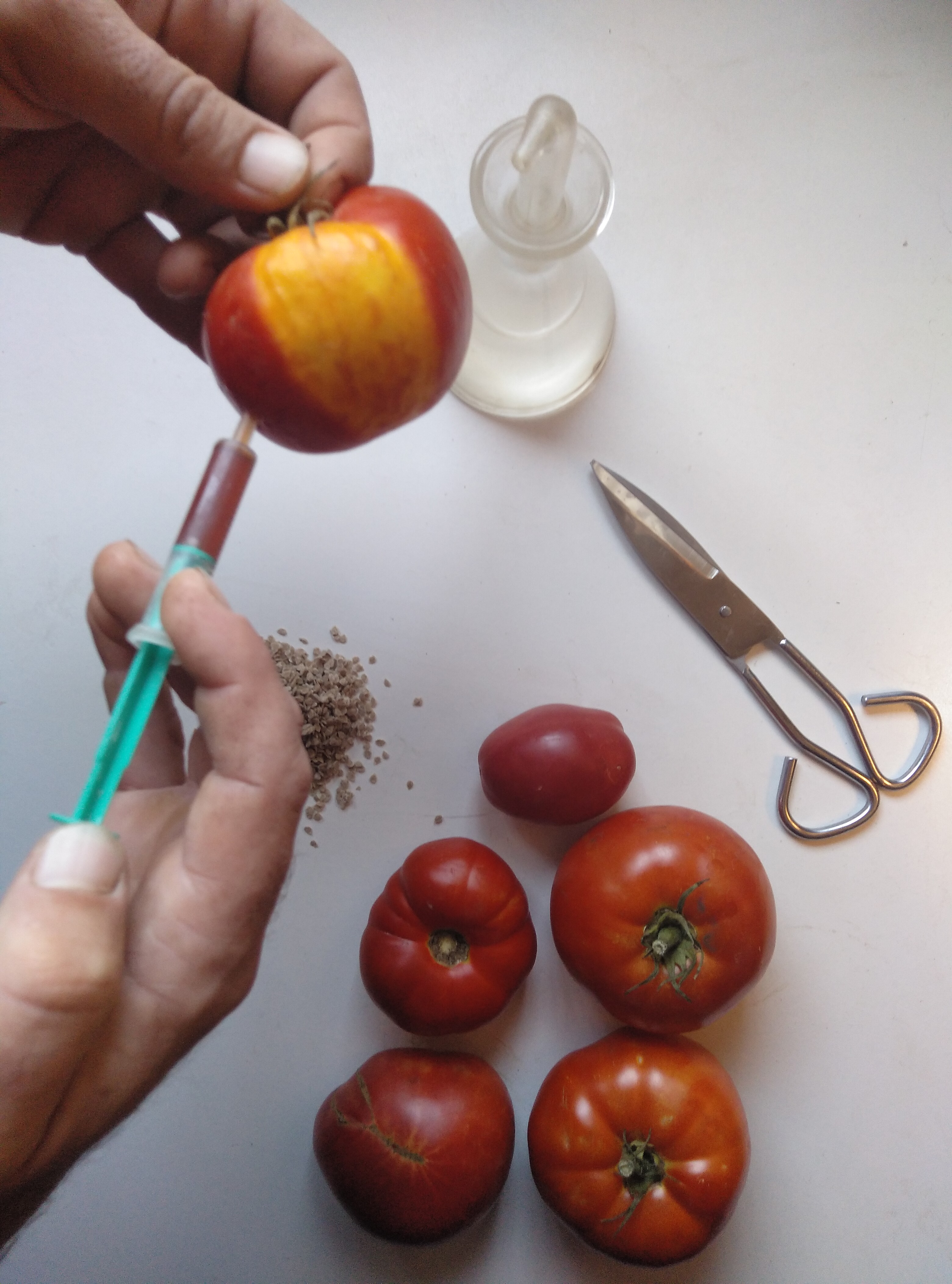In this programme you will find practical ways for moving towards a diet that includes habits which improve quality of life for ourselves and the people around us.
You learn how this affects our decisions, how we choose what we buy and where we buy it, all in a cheerful, fun and creative way.
We discover how to improve our surroundings and our inner selves, in order to feel full of life.
Our food choices have an impact on the environment; we review various diets (carnivorous, omnivorous and vegetarian) and finally focus on the plant-based diet.
Sustainable Food Citizen Week
Video resum de la Setmana Ciutadana de l'Alimentació Sostenible 2021
The activities of the Sustainable Food Citizen Week
Sustainable Food Citizen Week provides an opportunity to understand the relationship between food habits and cross-cutting aspects such as the climate emergency, local economic development, culture, politics, social rights and health. A week dedicated to citizens, in which you will achieve knowledge, reflection and debate about the main issues of the following activities.
Gastronomic heritage
- October 18th - 18.00 HBetevé broadcastingTelevised cooking workshop
- October 19th - 18.00 HBetevé broadcastingTelevised cooking workshop
How can you adapt sustainable food to healthy living?
Batch cooking consists in cooking for the whole family and investing a little time so you can make nutritious everyday meals, at home and for your lunch box.
BREAKFAST: habits as simple as a good glass of water, with sea water and lemon. Breakfasts such as shakes or smoothies, which you can warm up in winter. You will discover recipes such as rice pudding and pear, quality-bread sandwiches and an omelette made from organic eggs.
LUNCH: important notions on how to structure a dish with different groups of foods. A dish is not the same for a teenager as a middle-aged person. You can cook the same for all the family but put in what each person needs. You should always add vegetables in season, wholemeal carbohydrates, some raw vegetables, sprouted and fermented foods, etc. You will discover recipes such as baked pumpkin with curry; lentils cooked with adobo, sprouted ... and seeds; chickpeas with prawns; wholemeal rice with mushrooms; and lettuce head salad with carrot, olives and chopped chives. Wholemeal pasta with courgettes, mushrooms, squid with carrot and beetroot.
EVENING MEAL: an evening meal or supper should be light and eaten as early as possible. You will discover recipes such as pumpkin, sweet potato and oatmeal soup; vegetable pudding with carrot and broccoli; fish soup with noodles, and grilled fish in a sauce.
- October 20th - 18.00 HBetevé broadcastingTelevised cooking workshop
Getting children away from processed food as much as possible.
At home, we can organise menus very quickly, using fresh and seasonal local produce.
Not forgetting breakfasts and snacks and their natural desire for sweet food; we offer some great solutions.
Waste vs Good use
- October 22nd - 18.00 HBetevé broadcastingTelevised cooking workshop
A chef and an expert in better food use provide advice and useful tips for making the best use of food in cooking. Using the preparation of various recipes as a common thread, the programme introduces concepts that show the importance of sustainable, healthy food and ideas that help to prevent food waste, through everyday consumer and cooking habits.
Urban rurality and biodiversity
- October 17th - 20.00 HPlaça ReialShow
At the improshow we play with knowledge about food, sustainability and the climate emergency. We’ll be improvising everyday situations connected with sustainable food and local organisations, through humour and based on audience suggestions.
An innovative experience in which the audience will become the authors of stories that are surprising, exciting and fun. - October 18th - 17.30 HParc de la Ciutadella - Passeig de Pujades amb Passeig Lluís CompanysVisit / Tour
A walk for discovering the many wild plants we have close to home that we were unfamiliar with and the varied possible uses of which we could never have imagined. We’ll learn how to identify them, we’ll smell and taste them and discover the uses each of the species has inside and outside the kitchen.
- October 19th - 17.30 HJardins Pla i ArmengolVisit / Tour
A walk for discovering the many wild plants we have close to home that we were unfamiliar with and the varied possible uses of which we could never have imagined. We’ll learn how to identify them, we’ll smell and taste them and discover the uses each of the species has inside and outside the kitchen.
Ecological footprint
- October 17th - 13.00 HPlaça del ReiTalk
Talk looking at all the most common stages of the life cycle of our food. From the farm to the table, we’ll be pondering the carbon footprint of agriculture, packaging, logistics, cooking, organic waste etc. The overall goal is to provide information for deciding on food which has a lower impact in terms of greenhouse gas emissions. The session will also stress the contradictions in environmental communication for consumers.
- 17th October 13.30 hPlaça del ReiTalk
What are the impacts of our food system on our planet? How does this affect the peasantry, our territory and the communities of the global south? What role does the food industry play? What can we do as consumers? What is the role and situation of women, who have traditionally fed the world? On all these issues, we offer you an exciting dialogue with Vandana Shiva (Indian climate activist, graduate in physics, philosopher, ecologist, feminist and author of more than twenty books and 300 articles in the world's most prestigious scientific journals) and Esther Vivas ( activist, researcher in social movements and agricultural and food policies, degree in journalism and diploma in higher studies in sociology from the Autonomous University of Barcelona).
- October 17th - 17.30 HPlaça del ReiRound table
The current industrial agri-food system generates a series of environmental conflicts that are manifested through struggles and mobilisations in response to the impact this system has on the environment and society. These conflicts are mainly associated with the defence of environmental conditions or equal access and distribution of natural resources, often occurring in production and transit areas, and ultimately affecting the regions and communities where they happen. They often reveal conflicting interests, different development paradigms, and aspects related to involvement in decision-making.
The aim of this roundtable is to address some of the main current socio-environmental conflicts in Catalonia, arising from the food system, and to understand the causes and impacts both in Catalonia and the Global South, in order to make them visible, encourage dialogue and provide possible solutions or alternatives.
Proximity
- October 16th - 12.30 H and 17.00 HParc de la BarcelonetaShow
Horta is a show that recuperates values rooted in the earth and the most genuine ancestral customs, bringing them up to date and adapting them to the interests and knowledge of younger children. An itinerant journey through various transformed theatrical spaces in Horta, where the senses and the children are the protagonists: touching the earth, listening to and singing songs, discovering stories and old objects and smelling herbs.
Joana and Esther, the two stars of this story, have everything ready: this is the time to wake the earth up and start the cycle, as they were shown by their granddad Vicent and their grandma Maria.
An experience that combines the power of oral narration with the magic and poetry of theatrical and performance resources. Through our senses, we discover what Horta is, with tenderness and emotion, but above all, with humour, entertainment and education.The countryside is part of our tradition and our future and... Who knows, the children in the audience today may become the great agronomists of the future!
- Local fish, fishermen from Barcelona. How to consume local fish in a sustainable and responsible wayOctober 17th - 11.00 HParc de la BarcelonetaTalk
Talk presenting local fish consumption projects such as La Platgeta, which will provide the keys to consuming fish in a healthy, fair, sustainable and responsible way.
- October 17th - 14.00 HParc de la BarcelonetaCulinary experience
Would you like to taste a menu put together by healthy, sustainable groups? Let yourself be seduced by their culinary proposals. Come, taste, and become part of the change.
When designing the menu, we took the following into account:
- The Mediterranean diet as the basis for the project: seasonal vegetables, legumes and fish.
- The food offered to us by the producers of local, seasonal ecological produce.
- The dishes have been designed with culinary combinations, in order to enjoy the territory's food, produced using healthy culinary techniques.
The menu is cooked by eighteen chefs who belong to the network; we are from Catalonia, Valencia, Aragon, Madrid, the Balearic Islands, the Canary Islands and Galicia.
We serve the menu accompanied by the producers who supplied the vegetables, legumes, oil, wine and fish. We will also be accompanied by a manager of short-circuit marketing, a nutritionist and an educator; we would like you to meet all of the people who make the change of model possible in our groups, a strategic sector for furthering this change in the food model.Menu
- Cream of sweet potato with hen-of-the-wood mushrooms
- Raw vegetable salad with pomegranate and orange vinaigrette
- Chickpea hamburger with spinach and young garlic sauce
- Beetroot pie with carob sauce
We hereby inform you that we cannot guarantee that the meals served during this event are free of substances that may cause some type of allergy or food intolerance.
More week
- October 21th - 18.00 HC del Rec, 27Talk
Discover the evolution of the Horteras de la Ribera de Barcelona Consumer Group, seen from the experience of the producer and the consumer, with Dulu and Enric (Hort3Sols farmers) and Julien Telle (Les Horteres consumer) .
- October 21th from 18.00 to 19.15 HEspai Consum ResponsableTalk
Discover a catering service with sustainable job placements, use of non-polluting and reusable materials and with sustainable food products. We use seasonal and local chemical-free products.
- October 21th from 18.30 to 20.30 HLa Lleialtat SantsecaRound table
In this conference, we will explain how the new genetically-modified organisms work (GMO) and any resulting complications that may arise for farmers in terms of feeding the human race and how they are treated in the future, depending on how they are classified.







